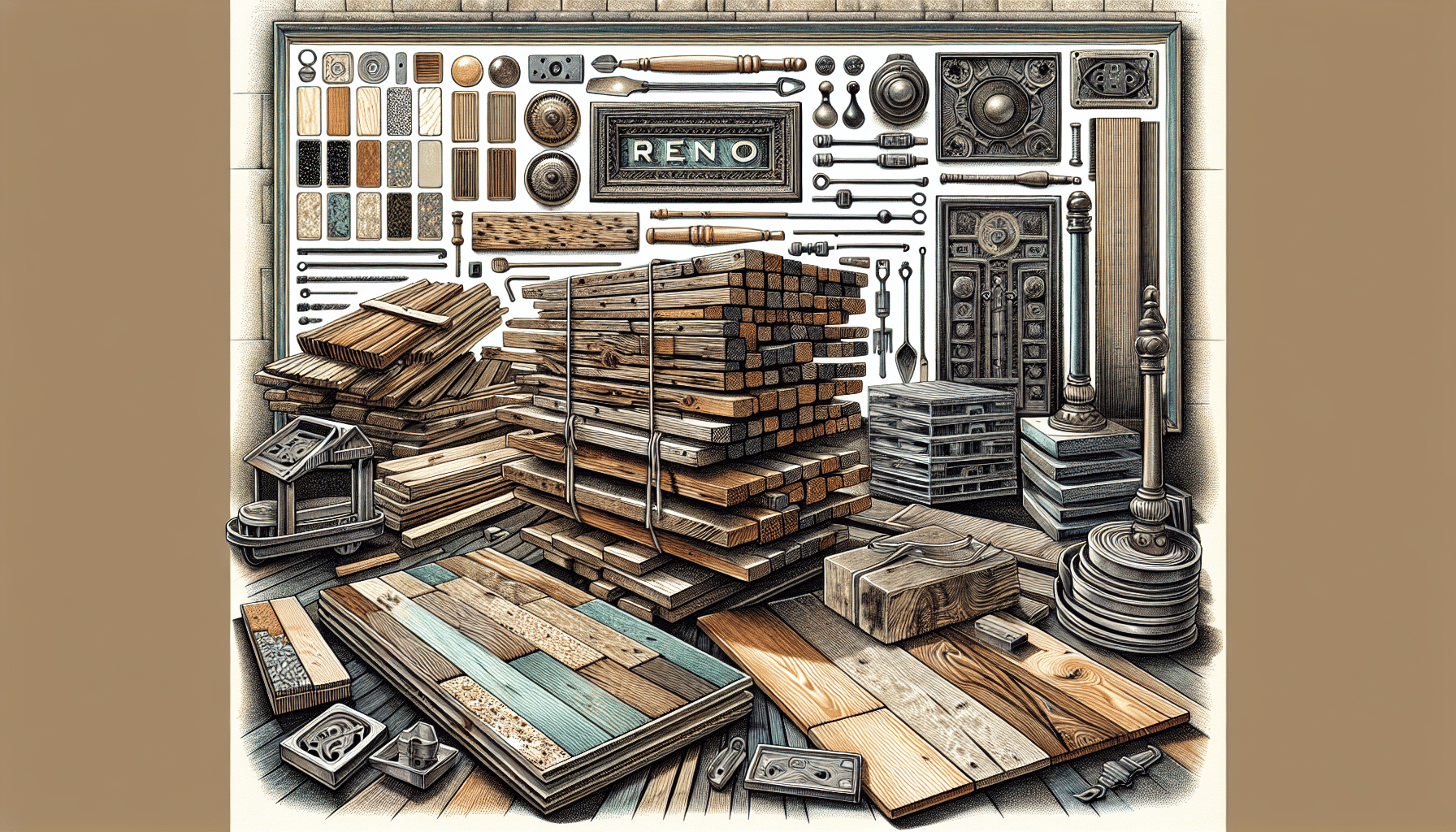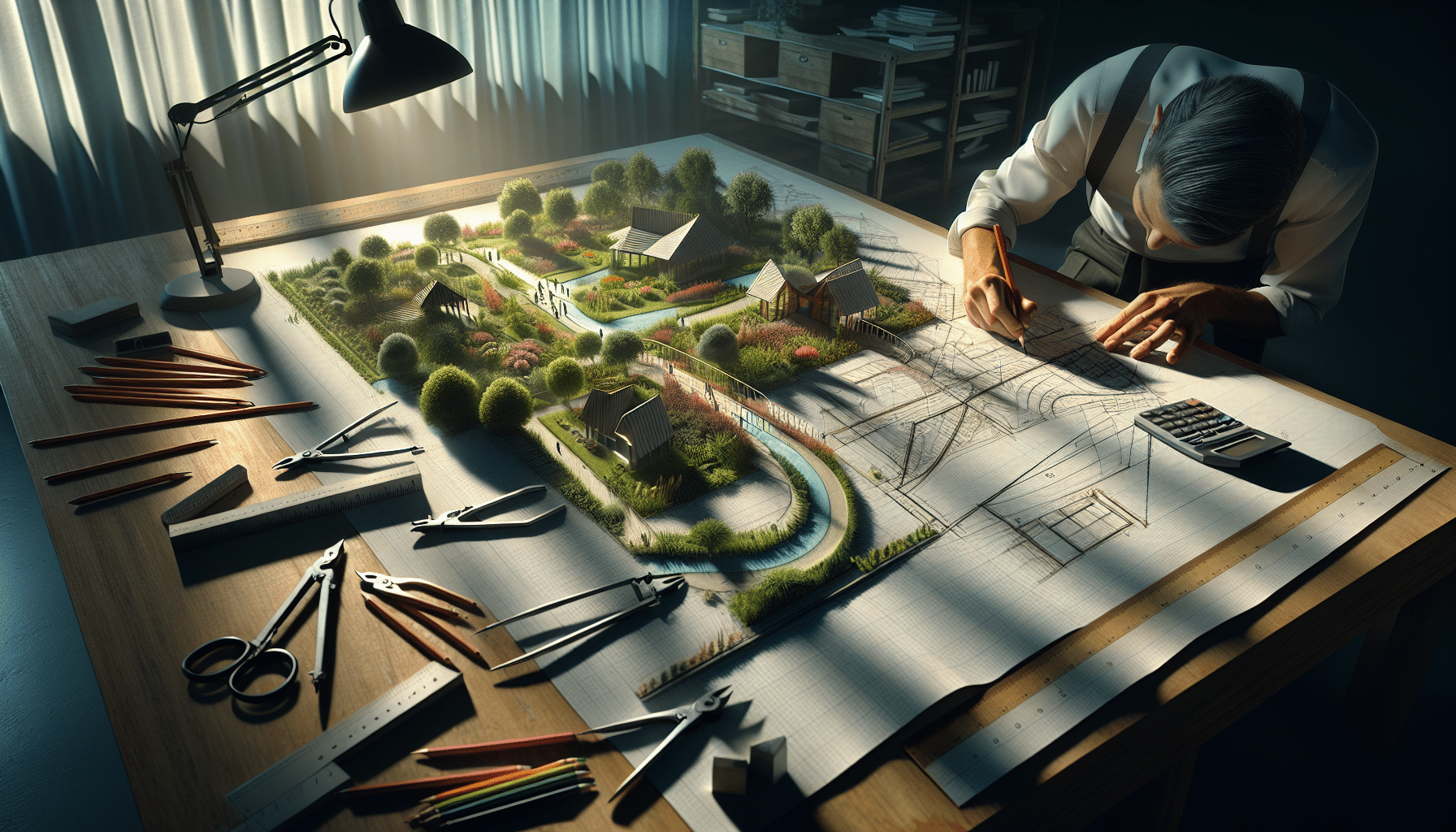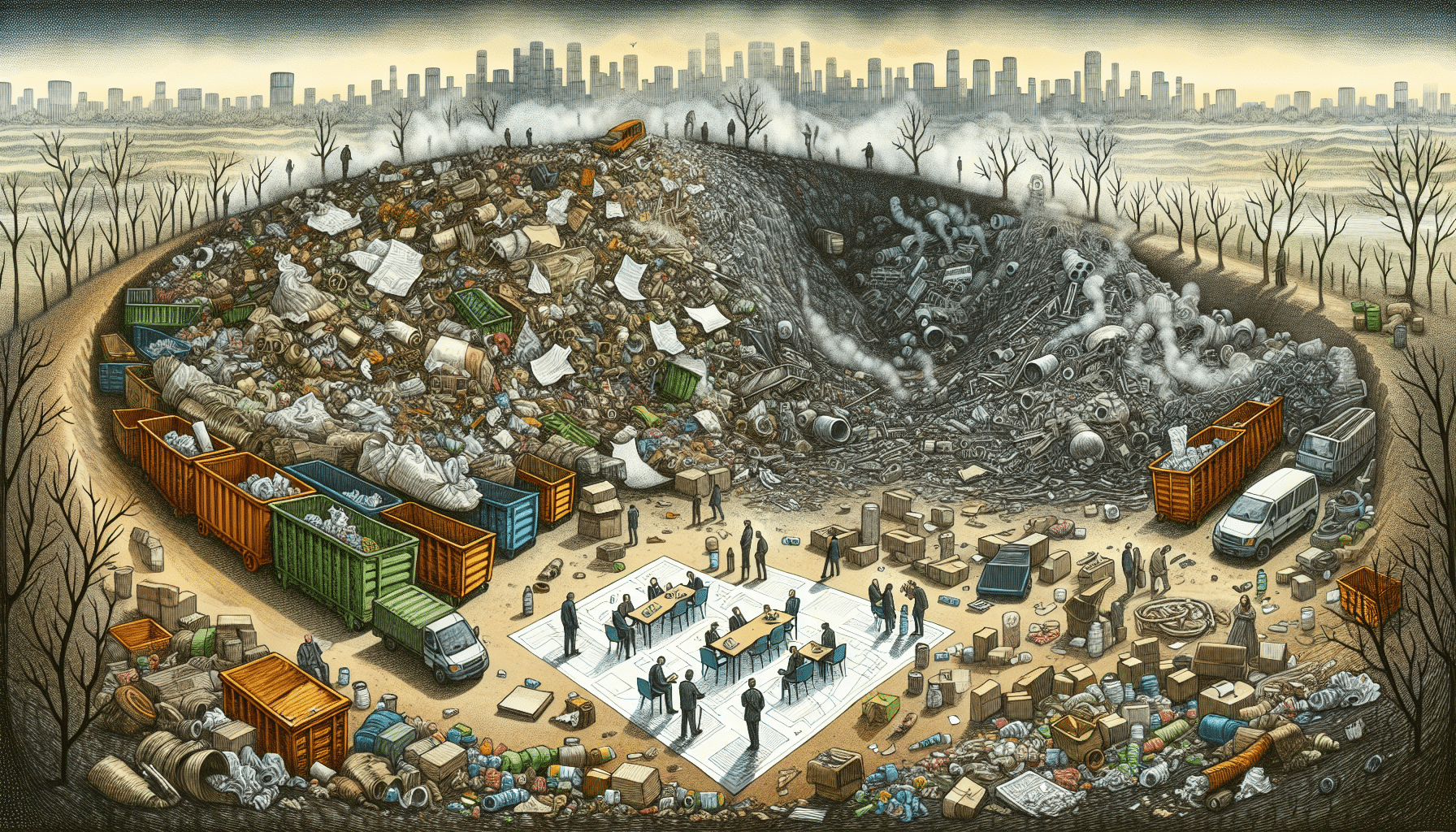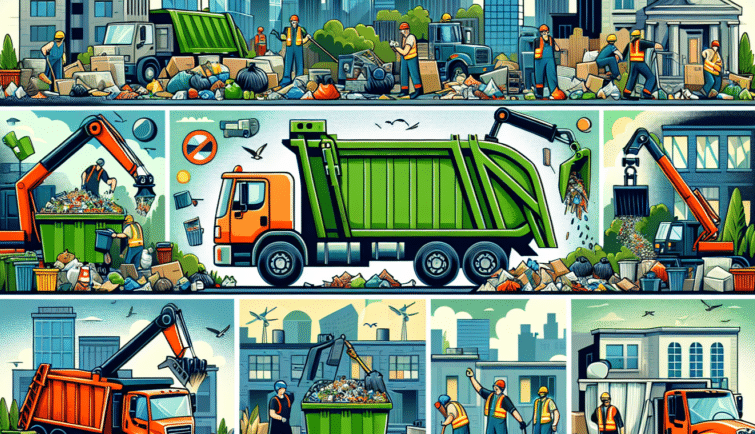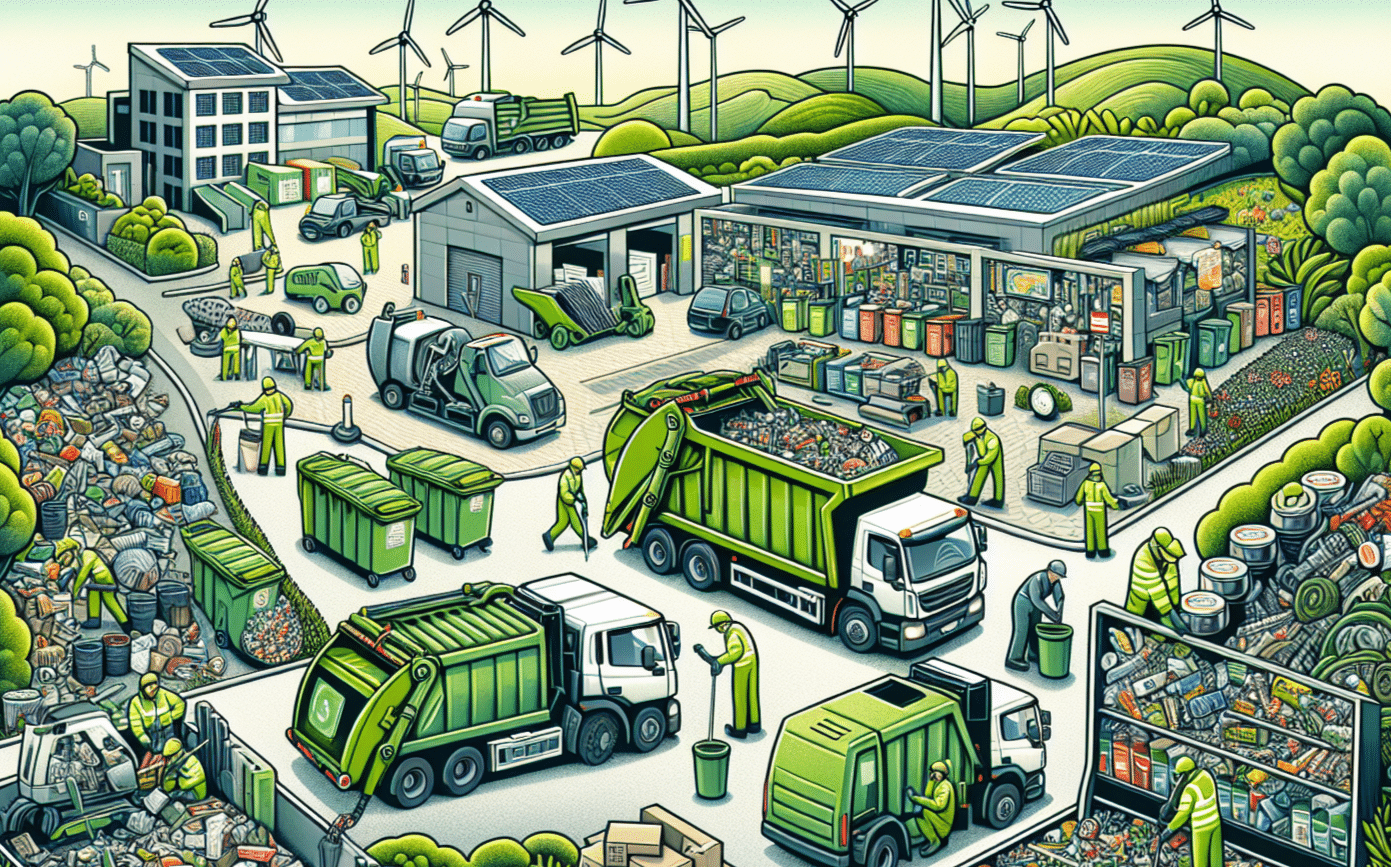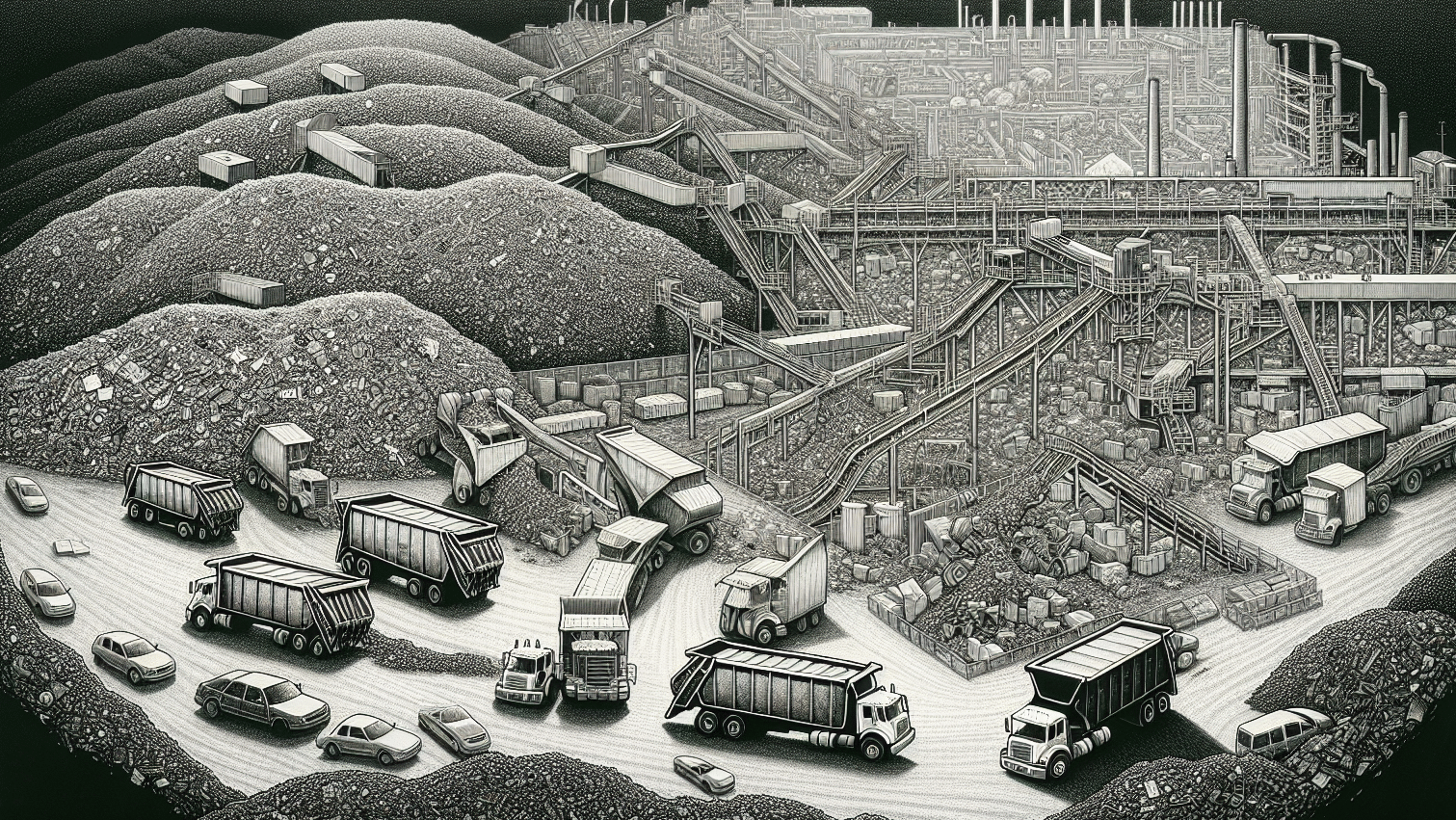Do you want to live sustainably and waste less in your home? Zero waste homes are about making small, thoughtful changes that add up to a big environmental impact. This article will guide you through the simple steps to minimize waste in your household, applying the essential ‘five R’s’, and providing room-by-room advice to create an eco-friendly home.
Key Takeaways
- Embrace the five Rs (Refuse, Reduce, Reuse, Recycle, Rot) to establish a zero waste home, cutting off waste at its source and benefiting the environment through less resource use and pollution.
- Zero waste home practices extend to every room, emphasizing the reuse and repair of items, reducing the need for new resources, and integrating sustainable living into daily routines.
- Adopting zero waste habits contributes to environmental preservation and also leads to significant financial savings through DIY solutions, secondhand shopping, and investing in reusable alternatives.
The Foundations of a Zero Waste Home
The zero waste home is not just a living space; it’s a statement of intent, a declaration that we can live abundantly without leaving a trail of waste in our wake. Anchored by the five core principles of Refuse, Reduce, Reuse, Recycle, Rot, the zero waste lifestyle movement aims to strike at the heart of our environmental crisis by cutting off waste at its source.
Embracing these principles comes with a plethora of benefits, including fewer resources consumed, less pollution, and a measurable reduction in our environmental footprint.
Understanding Zero Waste Living
The zero waste movement is a vibrant community of individuals and families striving towards a goal that’s as audacious as it is essential: a world where nothing is wasted, and everything is valued. The zero waste movement aims for progress, knowing that each small step forward is a victory for our planet.
The overall goal is to conserve our precious natural resources and embrace a life of simplicity and mindfulness. Focusing on waste reduction and prioritizing actions like the use of reusable containers instead of solely recycling, reshapes the world, one less plastic bottle and scrap of food waste at a time.
The Importance of Mindset
Transitioning to a zero waste lifestyle is as much about changing habits as it is about changing hearts. It starts with the simple act of saying no: refusing the unnecessary, the single-use, the disposable items that clutter our lives and our planet. Making a conscious decision to avoid wasteful packaging, such as plastic, is a critical first step towards a waste-free home.
Setting Realistic Goals
Embarking on a zero waste journey involves setting a realistic goal that’s ambitious yet achievable, such as opting for products made from recycled materials.
Finding a community of like-minded individuals can help encourage a zero waste lifestyle through mutual accountability. Whether it’s online forums or local zero waste groups, these connections can be a source of inspiration and practical advice.
Room-by-Room Guide to Zero Waste Homes
The beauty of a zero waste home lies in its universality—every room, every space, can be a testament to sustainable living. It’s a philosophy that touches everything from the kitchen pantry to the living room couch, promoting the long life of the products we welcome into our homes. Rather than succumbing to a throwaway culture, we learn to repair, to care, and to extend the life of our belongings, embracing waste free living.
Zero Waste Bathroom
In the zero waste bathroom, traditional products are swapped out for sustainable alternatives with a minimal environmental footprint. Shampoo bars, bamboo toothbrushes, and soap bars enter the scene, reducing the amount of plastic waste generated.
For bathroom textiles, we turn to organic cotton or bamboo, which offer a soft touch and a gentle impact on the planet. With the addition of biodegradable toilet paper and the use of a bidet, we can further decrease our environmental footprint.
Zero Waste Bedroom
Creating a zero waste space in the bedroom with the use of eco-friendly materials, such as natural wood and organic fibers, fosters a restful and environmentally conscious retreat. By choosing sustainable products, we invite a sense of tranquility that’s grounded in the principles of zero waste living.
Zero Waste Living Room
The living room can also reflect our zero waste aspirations. Sustainable furniture made from eco-friendly materials and sporting certifications like FSC and Greenguard set the standard for a zero waste lifestyle. Repairable and recyclable furniture pieces reinforce the notion that our belongings should have a life beyond their initial use.
Some ways to create a sustainable living room are:
- Choose multifunctional furniture that adapts to our changing needs.
- Minimize the quantity of furniture needed.
- Use energy-efficient electronics and streaming devices to reduce electronic waste.
- Choose appliances with longer lifespans and responsibly recycle old ones.
By following these practices, we can create a living room that is sustainable and promotes connection rather than consumption.
Money-Saving Tips for Zero Waste Homes
Adopting a zero waste lifestyle, in addition to saving the planet, is financially beneficial. Simple changes such as carrying your own coffee cup and reusable bag can result in significant annual savings\. In addition, switching from bottled water to tap water can help increase savings up to a hundred dollars a year. Similarly, opting for homemade air fresheners and solid soap bars is both economical and environmentally friendly, aligning our financial goals with our zero waste ambitions.
Embrace DIY Solutions
In the realm of zero waste homes, DIY solutions encourage self-sufficiency and health. Harnessing the versatility of natural ingredients like baking soda and apple cider vinegar allows us to create personal care products that are both non-toxic and effective. These homemade items reduce our exposure to harmful chemicals and diminish packaging waste, aligning our health with the health of the planet.
Shop Secondhand
The secondhand market is a treasure trove for zero waste enthusiasts. Purchasing previously loved clothing and furniture prevents these items from ending up in landfills and supports a culture of reuse. Platforms like Offer Up, thredUP, and Poshmark make it easier than ever to buy secondhand items, contributing to the reduction of waste.
Invest in Reusable Alternatives
When it comes to zero waste living, investing in zero waste alternatives, such as reusable products, is extremely beneficial. High-quality, durable products may come with a higher upfront cost, but they pay off in the long run by reducing the need for frequent replacements and waste.
Teaching Zero Waste Values to the Next Generation
The zero waste journey isn’t just about us; it’s about the world we leave behind for the next generation. As parents and role models, our actions and choices have a profound impact on the environmental values and behaviors of our children. By living out our zero waste values, we set a powerful example that can inspire the next generation to embrace sustainable living.
Leading by Example
Setting a strong foundation for sustainable living begins in our homes. Visibly practicing zero waste habits such as using refillable containers and reducing plastic waste sets an example for our children. Their young minds are shaped by what they see and experience, so when we lead by example, we are teaching them a valuable lesson that will last a lifetime.
Engaging in Eco-Friendly Activities
Engaging the next generation in eco-friendly activities is a fun and effective way to instill zero waste values. Activities such as nature excursions and community gardening foster an appreciation for our natural resources and underscore the importance of preserving them. Interactive games and challenges, like the Ecoed game app, blend education and entertainment, providing an engaging platform for the whole family to learn about sustainability.
Overcoming Challenges on Your Zero Waste Journey
Every journey has its hurdles, and the path to zero waste is no different. For example, time management can pose a challenge since adopting zero waste practices usually requires additional effort in planning and preparation. Additionally, the zero waste lifestyle can sometimes clash with societal norms, leading to social pressure and criticism.
Dealing with Doubt and Criticism
Encountering skepticism is a common aspect of pioneering change, and the zero waste journey is no exception. Critics might question the impact of individual efforts or undermine the importance of waste reduction. Building a support network of like-minded individuals and sharing your successes can be powerful tools in overcoming doubt and criticism.
Finding Local Resources
Locating zero waste resources can sometimes be a challenge, especially in areas where sustainable options are limited. Online communities and local groups can be lifelines, offering support and advice to help you find everything from bulk locations to compost sites. Litterless is an excellent resource for identifying these local zero waste options, helping to make the journey less time-consuming and more manageable.
Summary
This guide has delved into the foundations of zero waste living, explored practical ways to reduce waste room by room, and discovered how these efforts can also ease our financial burdens. The path to zero waste is not just about what we discard but about rethinking our entire approach to consumption and waste.
Every small action counts, every sustainable choice adds up, and together, our community can build a future that’s cleaner, greener, and more mindful. Embark on your journey with confidence, knowing that the steps you take today are paving the way for a brighter, waste-free tomorrow.
Frequently Asked Questions
What are the core principles of a zero waste home?
The core principles of a zero waste home are Refuse, Reduce, Reuse, Recycle, and Rot.
Can zero waste living really save me money?
Yes, zero waste living can definitely save you money by reducing the need to buy disposable items, investing in durable goods, and minimizing waste, thereby lowering various expenses.














